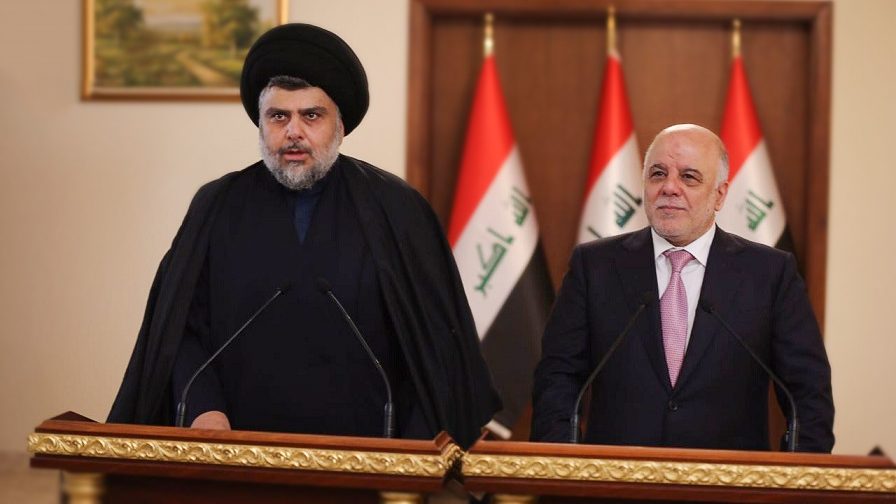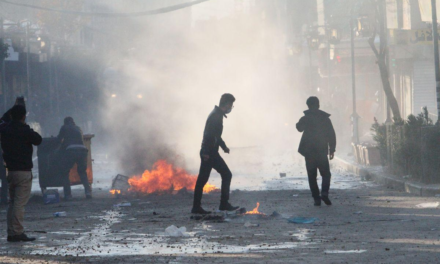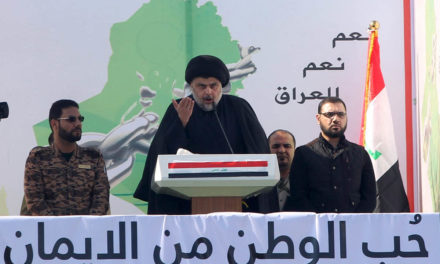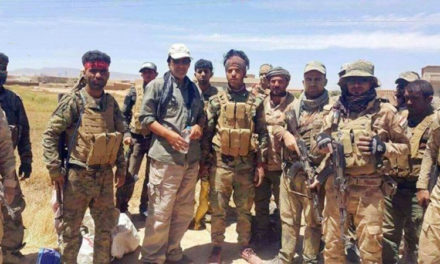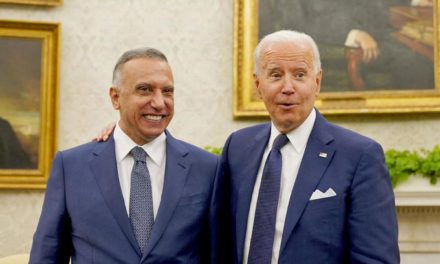Two years ago, in April 2016, followers of influential Iraqi cleric Moqtada al-Sadr stormed the nation’s parliament compound to pressure Prime Minister Haider al-Abadi to remove what they called corrupt ministers from his cabinet and appoint independents and technocrats. While Iraq prepares to hold elections next month, al-Sadr issued a warning this week that he could go return to the Green Zone if the people signal their desire for a new “uprising” through the ballots, or if the same “old and corrupt faces” tried to return to government. Another dangerous face-off may be coming to Baghdad.
In Iraq, elections are the easy part of the often arduous process of forming a new government. The negotiations could take a long time—a whole nine and a half months after the contested 2010 election. The state of fragmentation of political coalitions (27 coalitions and dozens of parties competing separately) allows for multiple possible scenarios. But one player, Moqtada al-Sadr, is positioned to play an oversized role in shaping the outcome.
What’s gives Sadr this position?
Abadi is the frontrunner, but he needs another sizable Shi’a bloc to create a viable nucleus for a ruling coalition.
Of the five Shi’a-centric competing blocs, only one is likely to pose a serious challenge the incumbent Abadi and his Nasr (Victory) Coalition. The leaders and politicians associated with the Popular Mobilization Forces (PMF) formed the Fatih (Conquest) Coalition in an attempt to translate battlefield performance into political gains, riding on the popularity and hero status of the fighters who stepped up when the Iraqi forces crumbled in 2014. Badr Organization leader Hadi al-Amiri, or more likely someone he supports, will try to contest the premiership.
The other three are likely to play the supporting actor role to either Fatih or Nasr.
Ammar Hakim’s Hikma (Wisdom) Movement contemplates declaring its support for Abadi staying in office for a second term after the elections, a source close to Hakim indicated to the author. Former PM Nouri al-Maliki has ambitions and continues to hold some strings and resources, but is weaker, and his reputation is weighed down by heavy legacy of losing a third of the country to ISIS in 2014. Polls and estimates suggest he will trail both Abadi’s Nasr and the PMF’s Fatih coalitions and will therefore have to bandwagon with one of them.
Then there is Moqtada al-Sadr, who has improved his image in the region with high profile visits to the UAE and Saudi Arabia, and who is building broader appeal at home as a nationalist leader among a public increasingly fed up with sectarianism. He expanded his electoral coalition to include civil society activists and even Iraq’s Communist Party, capitalizing on his role in the popular anti-corruption that started in 2016. The cleric’s ability to mobilize public support today surpasses that of any other political figure. He had in the past supported Abadi, but that was thrown into question following Abadi’s ill-advised and curiously short-lived alliance with the PMF’s Fatih Coalition— Sadr called the alliance “abhorrent”.
It is virtually impossible for any party to win a majority needed to form a government on its own. The most generous estimates give Abadi 78 seats— that’s 14 fewer than Maliki’s 92 seats in 2014. Other estimates give Abadi a mere 5 seat edge over Fatih. The smaller the gap between Abadi’s Nasr and Hadi’s Fatih, the more contested the premiership will get.
The first of the two leading coalitions (Nasr and Fatih) to win the support of two of the remaining main Shi’a groups will be positioned to claim first take at the premiership. As things stand today, Abadi still has a better chance than his PMF rivals to win the support of Hakim and Sadr.
With his expected 30-40 seats in the new parliament, Sadr will have the most weight after Abadi in the government forming nucleus. If his actions in 2016 and recent statements are any indication, Sadr will likely use this fluid moment to push for the technocratic government idea he lobbied for in 2016 in order to weaken the hold of other political rivals on government institutions.
Abadi will have two options, and neither is good.
He could reject Sadr’s proposal to avoid alienating everyone else. That would likely cause Sadr to abandon Abadi and possibly seek to promote a prime minister candidate of his own. The race for the premiership becomes a 3-way game, and the government formation process drags on. Six or twelve months later, after much frustration, the outcome will likely be a “compromise” cabinet formed after long horse trading among the oligarchs–more of the same.
Or, Abadi could endorse Sadr’s plan. The risk involved in this approach is: why would other parties support any prime ministerial candidate win the office if there were no benefits in the form of a share of cabinet seats? Abadi will likely notice a shortage of altruistic political parties in Iraq (shocker!)
As this pushes potential partners away from Abadi, the fortunes of his rivals who are willing to promise cabinet positions along the usual rules of the game, will rise. The result could be a Badr-led government, or even the return of Nouri al-Maliki.
Whatever the results in May, the international community, including the U.S., should remain engaged to foster dialogue among all parties (yes, including reaching out to Sadr) toward a quick conclusion to government-formation negotiations to prevent regional meddling, primarily by Iran, from exploiting the fragmentation to shape the outcome to their benefit. The international community should support reforms at a reasonable pace that moves the Iraqi cabinet gradually away from the control of the oligarchs while avoiding pushing Abadi’s potential allies into the arms of Iran’s friends.
The stakes are high for Iraq and regional stability. Iraq needs a government that quickly captures the window to build on the success in defeating ISIS on the battlefield and learns from the lessons of 2010-2014. Nouri al-Maliki’s second term squandered the post-al-Qaeda opportunity to consolidate democracy and precipitated the next civil war. A protracted government formation period would distract the stabilization and create gaps that ISIS, or its successor, can exploit.

Omar Al-Nidawi
Omar Al-Nidawi is an Iraq analyst based in Washington D.C. and he is a fellow with the Truman National Security Project. The views expressed here are his own.

